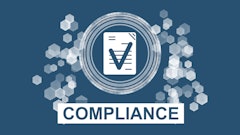By John F. Martin
While outsourcing can hold the promise of improved results for lower costs and fewer operational headaches, companies have learned that benefits can be elusive when outsourcing business processes or functions, especially overseas.
According to recent research from Deloitte Consulting, 70 percent of large-company executives surveyed said they had "significant negative experiences" with outsourcing projects, and 44 percent of companies said that outsourcing didn't save money in the end.
Other studies show that the most common causes of outsourcing failure occur during the delivery cycle, such as poor-quality service, lack of flexibility and hidden costs. Because of the extended timeframe of outsourcing relationships, success or failure is largely determined after the contract is signed, as the supplier delivers the services over a period of months and years.
So how do companies ensure success during the delivery cycle? Many companies are addressing these challenges through end-to-end services procurement applications. These applications help ensure that companies gain desired outsourcing benefits by managing the end-to-end lifecycle of the outsourcing engagement. More importantly, tracking these processes also provides visibility into costs, quality, supplier performance and overall value delivered.
While many software applications can manage portions of the outsourcing process, an effective solution manages and measures all aspects of the outsourcing and offshoring relationship throughout the full lifecycle, enforcing compliance at every step and providing visibility into all touch-points.
At the first level, an effective program enforces compliance at every step in the delivery lifecycle. A contract repository by itself isn't nearly as useful as a transactional system that automatically enforces compliance to contract terms and rates for every deliverable, quality measurement and billing line item. By simply enforcing accurate billing only on approved deliverables, companies often achieve meaningful cost savings.
Outsourcing relationships should also evolve with changing business needs, as many engagements have failed spectacularly through lack of flexibility. A multi-year outsourcing and offshore engagement means ongoing change for both parties; any amendments to contract terms must be thoroughly tracked with a complete change history.
Measuring supplier performance is also critical and complex, with multiple metrics and service-level agreements often built into the contract. Unfortunately, these contract terms often are quickly filed and forgotten, and supplier performance is left to ad-hoc measurement and crisis management. The best approach is to automatically gather supplier performance metrics as part of the automated deliverable process.
By taking advantage of these capabilities, companies can ensure that the desired business benefits are achieved from outsourcing. Even more importantly, a services procurement solution enables companies to continually improve value from the relationship through advanced approaches such as:
- Service-level Accountability: SLA metrics should be tied to invoice bonuses and penalties and automatically enforced without renegotiation each invoice.
- Multi-sourcing: Partitioning the outsourcing work across multiple suppliers and shift workload to better-performing suppliers.
- Demand Management: An end-to-end automation program enforces all approvals online and connects each request with the resulting financial impact.
- Re-sourcing with Complete Information: A services procurement solution captures every touch-point of the outsourcing relationship to provide a complete picture of demand, supplier performance and spending. Together, these best practices allow companies to outsource with confidence, knowing that they will achieve the desired benefits and value from the outsourcing relationship.
About the Author: John F. Martin is senior vice president of strategy & technology for IQNavigator Inc. where he leads the design and evolution of the company's product suite as well as technical operations and corporate strategy.


























